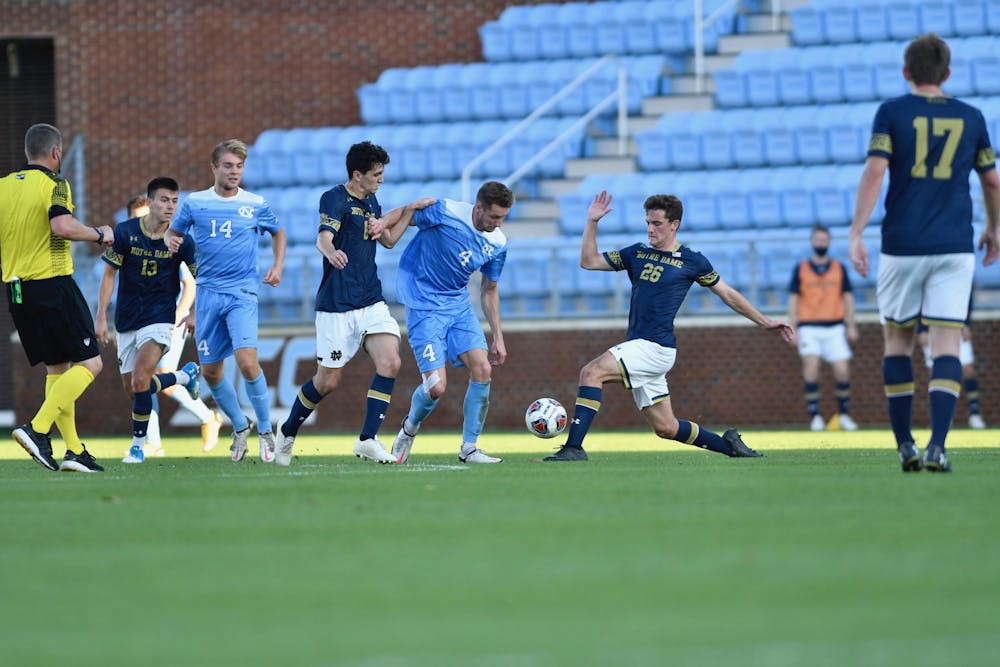The ACC Tournament, no matter the sport, is always one of the most difficult conference tournaments to win in college sports. The UNC men’s soccer team found that out the hard way in its Sunday 1-0 overtime loss to Notre Dame.
After closing the regular season with a strong 2-0 win over Duke last week, head coach Carlos Somoano’s squad could not keep the momentum going into the tournament. The Tar Heels were solid on defense throughout the game against the Fighting Irish, but failed to find the back of the net.
Sunday’s quarterfinal loss marks the seventh time in eight years that North Carolina hasn’t been able to win a game in the ACC Tournament, with the last time they won it all being in 2011, Somoano’s first year at the helm of the program.
In the first half, UNC dominated possession of the ball and kept the pressure on high, outshooting the Fighting Irish nine to two and kicking seven corners to their opponent's one. Corner kick after corner kick, chance after chance, Notre Dame’s defense held strong in front of the goal, and senior goalkeeper Keagan McLaughlin stopped every ball that made it to him.
Those corner kick misses would prove costly for North Carolina, as in the second half, it was Notre Dame that flipped the switch to generate far more chances on offense.
UNC first-year midfielder Tim Schels was around the ball throughout the match, but wasn’t happy with how his team performed in the second half.
“I think we managed the ball really good in the first half,” Schels said. “But I think they outran us completely in the second half, they just worked harder than us. That’s something we have to work on. I think there was a time they had like five or six corners in a row, and we cleared it, but it was a little bit shaky.
"From that point on, it felt like we weren’t dominating that much anymore, and the game shifted a little bit.”
Notre Dame’s aggression and physicality, particularly on defense, caused problems all afternoon for the Tar Heels, bogging down many of UNC’s chances. The two yellow cards drawn by Fighting Irish players, along with their four first-half fouls, showed their plan to out-grit and out-grind their opponents from the start.




